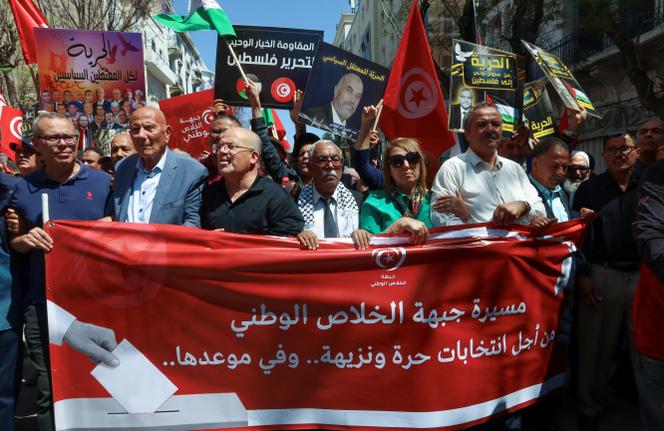


Repression has intensified in recent weeks in Tunisia, targeting sub-Saharan migrants, NGOs, journalists, civil servants and lawyers. The crackdown began at the end of April, with operations to dismantle temporary settlements of sub-Saharan migrants near Sfax, the country's second-largest city. On May 3, security measures were extended to Tunis, where a migrant camp set up opposite the headquarters of the International Organization for Migration was forcibly evacuated.
President Kais Saied justified the operations at a security council meeting on Monday, May 6, saying that "400 people" – men, women and children – had been moved to the "eastern border," which neighbors Libya. In the same speech, he criticized NGOs helping migrants, accusing them of receiving "huge sums of money from abroad" and calling their leaders "traitors" and "agents."
After the speech, the repression was almost immediate. Saadia Mosbah, anti-racist activist and president of the Mnemty association, which fights racial discrimination in Tunisia, was arrested the same day and placed in police custody under the Anti-Terrorism and Anti-Money Laundering Act. In addition, two officials of the Tunisian Refugee Council were indicted and remanded in custody for "criminal conspiracy to facilitate access to Tunisian territory."
They are accused of having published a call for tenders for the rental of a hotel intended to accommodate refugees or asylum seekers, as part of their mission with the United Nations High Commission for Refugees. Since then, at least five leaders of organizations helping migrants have been arrested and more than a dozen have been questioned.
The media are also in the crosshairs of the authorities. On Saturday, May 11, lawyer and TV columnist Sonia Dahmani was brutally arrested at the Tunis Bar Association headquarters, after making sarcastic comments about living conditions in Tunisia during a broadcast. "What extraordinary country are we talking about? The one that half of young people want to leave?," she had retorted to another columnist who claimed that sub-Saharan migrants were seeking to "colonize" Tunisia, a theory defended for over a year by the Tunisian president. Dahmani was indicted under Decree-Law 54-2022, a law introduced by Saied in September 2022, officially intended to combat the spread of "false information and misleading rumors."
That same evening, Borhen Bsaies, Radio IFM host on programs to which Dahmani contributes, and Mourad Zeghidi, another columnist, were arrested by police. According to their lawyers, they were questioned about their political analyses and content they shared on social media, before being taken into custody. "It's frightening, it's going to happen to all of us," said a journalist who had spontaneously come to express his solidarity in front of the Order of Lawyers building.
You have 51.96% of this article left to read. The rest is for subscribers only.
